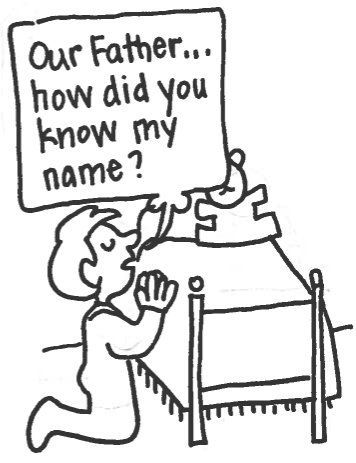
|
Worry
Our musical stroll down memory lane continues. Last week, Bob Dylan: “You gotta serve somebody.” This week, Bobby McFerrin: “Don’t worry, be happy.” Great tune. But as life philosophy, does that work?
We come to a portion of the Sermon on the Mount where Jesus reflects on anxiety, a recognition that it is part of the human experience, maybe especially for disciples. Jesus says: Do not worry about your life. Sometimes I think that’s all I do. I’m wondering, as I reflect on times when I’ve been gripped by worry, how helpful it is for Jesus to simply say: Do not worry.
Note that the verse begins with the word “therefore.” I’ve been told that whenever we see that word in scripture, we need to ask: What is the therefore there for? Well into the sermon, what have we heard that equips us for freedom from worry, from anxiety?
We heard the beatitudes, which tell us that even amid worrisome and challenging times, we can have a sense of blessed hope, the promise of the inheritance of God’s life. We’ve heard challenges to get clear about how we worship. Are we worried about what other people think of us? We’ve heard a call to seek God’s kingdom first, to have that as priority and trust that everything else (including our worries) will fall in place. We’ve heard calls to put trust in God, to live in closer relationship with God.
How can we exercise the kind of trust that allows us to live with less worry? When Jesus invites us to live free of worry, he doesn’t say that it will be easy. He does say that we will not be left alone. I don’t know about you, but I am well aware that I am unable to find freedom from worry on my own. I need help.
Which brings us to the message of this season. Coming off of the Feast of Pentecost, we learn that the Holy Spirit is sent to us, helping us address those things that make us anxious, those things that make us worry, those things that drive us nuts, those things that push our buttons, those things that cause us to fear. The Holy Spirit comes as paraclete, which literally means one who comes along side of us. The Holy Spirit comes as advocate, holy presence on our side, holy presence that has our back. The Holy Spirit comes as comforter, which implies that we need comfort. The Holy Spirit comes as guide and teacher, which implies that we need to be shown a way forward.
I’ve been thinking this week of ways that we can invite the Spirit’s help in all of this. I often find it helpful to look in the spiritual rear-view mirror and see the ways that God has acted in the past, even when I didn’t know it was happening. It provides a bit of a track record that helps me relax.
I sometimes find an attitude of gratitude can be helpful, counting blessings, recognizing that the things that keep me up at night are often problems I don’t really need to worry about.
I sometimes find it helpful to think of people who seem free of anxiety, folks who really have something to worry about, taking these folks as models. I think of the New Testament story of Paul and Silas singing hymns all night in prison. I think of the irrepressible joy of people like Nelson Mandela, Desmond Tutu, the Dalai Lama, who each faced some of the greatest cruelty that human beings can dish out.
Finally, on days when I have a bit of perspective, I realize that there’s not a lot of productivity in worry, as I hear that life is more than food or clothing, or job title, or zip code, or investments, or reputation, or education, or great sermon review.
So perhaps the best way we can address worry is to say, to pray: Come, Holy Spirit. Try it when faced with worries great and small. Claim the power present along side of us, power around us as advocate, comforter and guide.
-Jay Sidebotham


